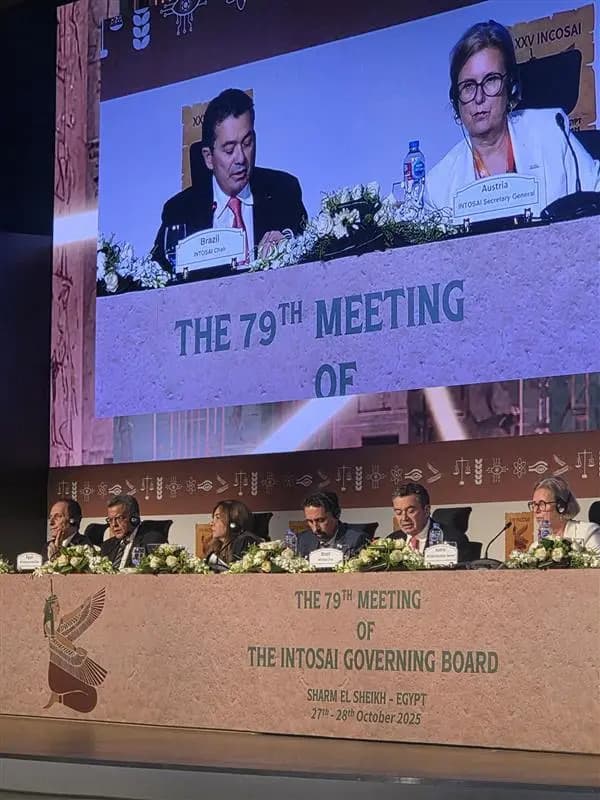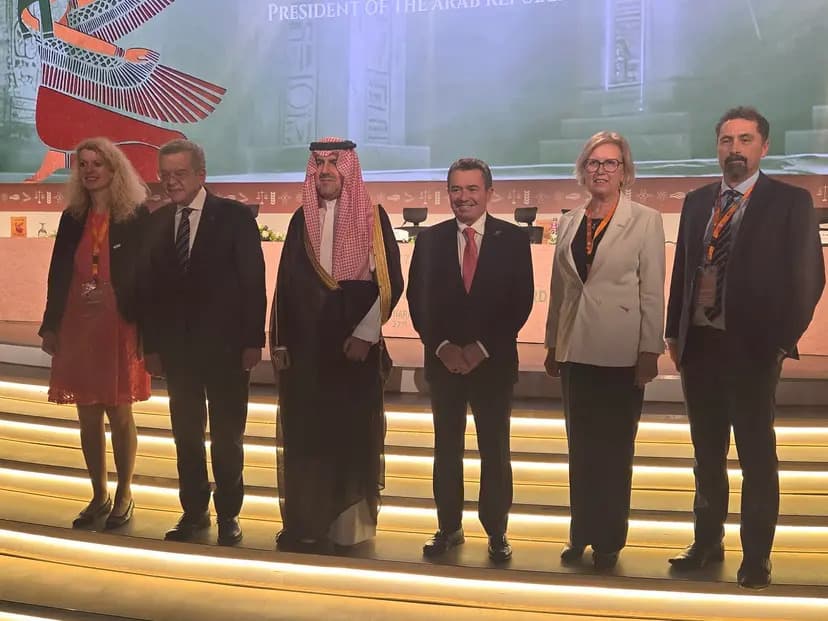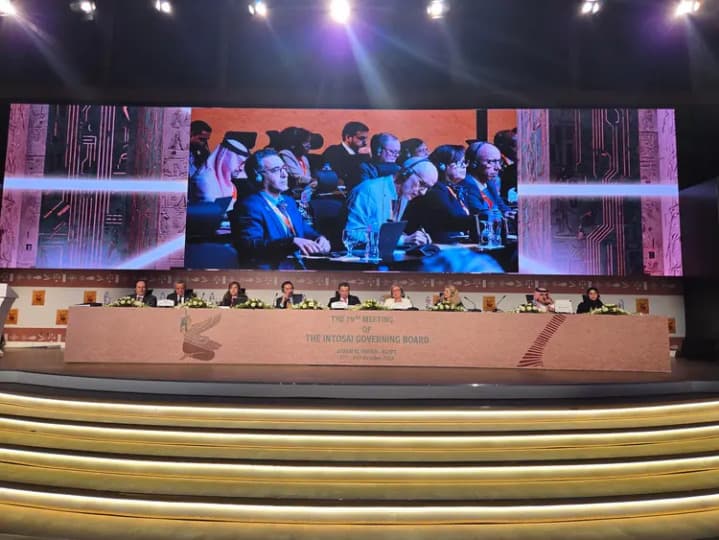Vital do Rêgo Chairs INTOSAI Governing Board Meeting and Presents Results of Brazilian Leadership
Report reviews the three-year term of Brazil's chairmanship of the International Organization of Supreme Audit Institutions (INTOSAI)
By Secom / Serint

On Monday, October 27, the President of the Brazilian Federal Court of Accounts (TCU), Minister Vital do Rêgo, presented to the Governing Board of the International Organization of Supreme Audit Institutions (INTOSAI) a report summarizing the organization's activities over the past three years.
During this period, INTOSAI was chaired by the Brazilian Federal Court of Accounts, which advanced an agenda focused on innovation, sustainability, and the strengthening of public governance.

The presentation took place at the 79th INTOSAI Governing Board meeting, presided over by TCU, ahead of the opening of the XXV International Congress of Supreme Audit Institutions (INCOSAI), held this week in Sharm El-Sheikh, Egypt.
Minister Vital do Rêgo led the meeting and highlighted the results of Brazil's chairmanship of INTOSAI. In his opening remarks, he emphasized TCU's efforts to expand the organization's influence on the global stage and expressed his pride in the achievements of the past three years.
This meeting carries a special meaning for me, it is the last time the Brazilian Federal Court of Accounts presides over INTOSAI's work. I feel deep pride in everything we have built together: we strengthened communication, enhanced institutional capacities, promoted regional integration, and reaffirmed the role of Supreme Audit Institutions as pillars of good global governance, said Minister Vital.
Main achievements
Among the most significant milestones of the Brazilian term, Vital do Rêgo highlighted the development of ClimateScanner. The methodology was designed by TCU in partnership with the Working Group on Environmental Auditing (WGEA) to assess climate governance. More than 250 auditors from 142 audit institutions were trained in seven regional workshops covering all INTOSAI regions.
This innovation represents more than a technological advance, it enables citizens to access and use data, strengthening transparency, social oversight, and environmental citizenship, he noted.
Another key initiative was the revitalization of the Supervisory Committee on Emerging Issues (SCEI), which gained new momentum under Brazil's leadership with a focus on strategic foresight and global trend analysis. In 2024, INTOSAI released Navigating Global Trends, its first foresight-based trends report.
Vital emphasized that keeping innovation and strategic thinking high on INTOSAI's agenda is essential. These efforts ensure our organization remains future-oriented, capable of anticipating challenges and reinforcing the role of SAIs in a constantly changing world, he said.
The report also highlights the Energy Transition Practical Guide, developed by TCU in collaboration with partners such as the International Energy Agency (IEA). Building on the document released last year, the current focus is to transform it into a global collaborative platform.
The Brazilian chairmanship also strengthened the INTOSAI Center for Advanced Studies (CASt), consolidating it as a hub for applied research and technical cooperation between auditors and academics. The center's projects have focused on three key areas: the impacts of artificial intelligence on SAIs, auditing climate finance, and combating hunger and poverty.

In his remarks, Minister Vital do Rêgo also underscored initiatives such as the creation of the International Organization of Supreme Audit Institutions with Jurisdictional Functions (JURISAI), the work of the OLACEFS Infrastructure and Energy Transitions Commission (COINFRA), and ongoing efforts to promote digital transformation among audit institutions.
On people-centered and cooperation fronts, he highlighted the International Women's Leadership Program (ProInter), initiatives promoting gender equality, investments in strategic communication, and actions to enhance citizen engagement.
Concluding the presentation, Minister Vital expressed gratitude for the trust and collaboration of INTOSAI members:
As this mandate comes to a close, the TCU takes pride in contributing to the collective effort of building a more dynamic, integrated, and forward-looking INTOSAI. On behalf of TCU, I extend our deepest gratitude to every member, partner, and colleague who shared this journey with us.
The 79th INTOSAI Governing Board meeting continues on October 28, featuring reports from the INTOSAI Task Force on Communication (TFIC) and the International Journal of Government Auditing (IJGA), as well as regional experiences related to the theme Erosion of Trust in Institutions, highlighted in INTOSAI's global trends report.


